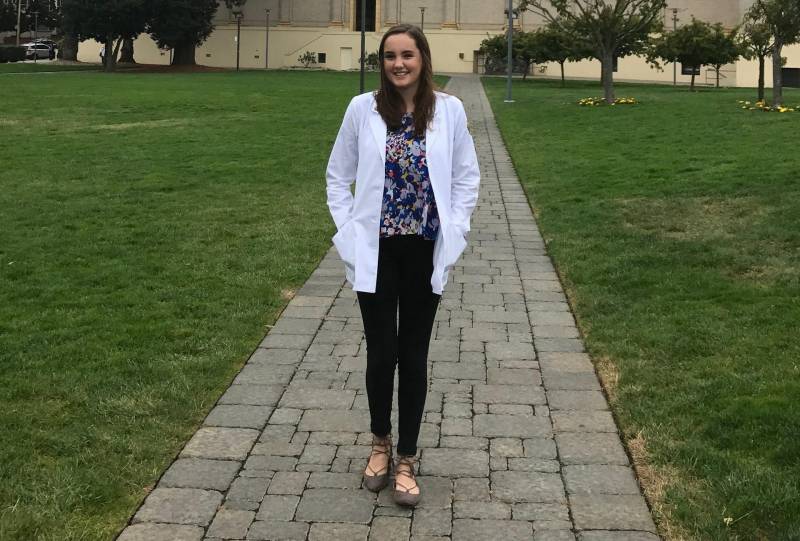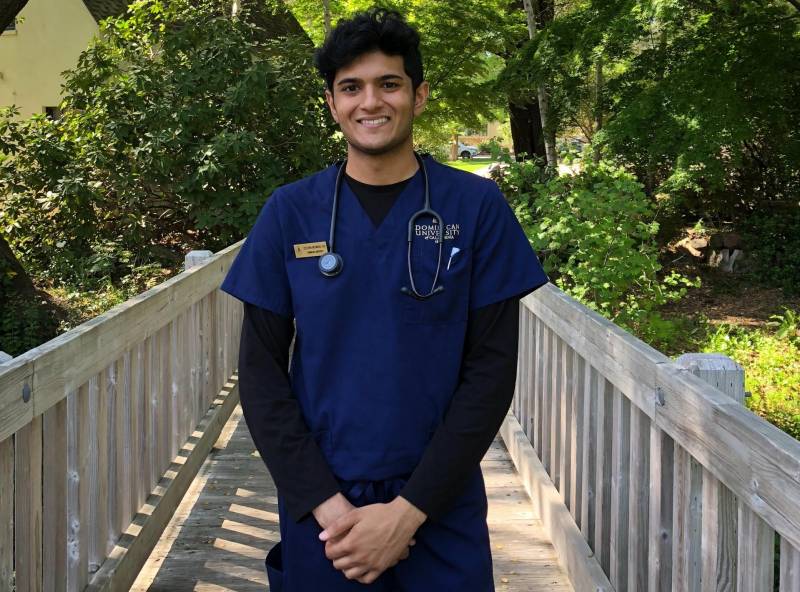Zeeshan Mehmood, a nursing student at San Rafael's Dominican University, expected to graduate this semester. But the coronavirus pandemic is disrupting those plans.
Hospitals around the state are hesitant to take on nursing students during the outbreak — even in the midst of fears that California's medical system is about to be overrun with COVID-19 cases. That means Mehmood can’t get the in-hospital training he needs to graduate and become a licensed nurse.
"It just sucks," Mehmood said over the weekend. "I’m sitting at home. If I was given the option to help, I would take it. And right now [hospitals] need it. They need all the help they can get."
Nursing educators and students are calling on regulators to change state requirements to make it easier for students like Mehmood to graduate.
The California Board of Registered Nursing currently requires 75% of nursing students' clinical education hours to be spent providing direct patient care — a level that students won't be able to reach if hospitals don't let them work.
Before the coronavirus hit, Julia Niven, a senior nursing student at the University of San Francisco, also anticipated graduating this semester. But that expectation has changed abruptly.
"Hospitals have essentially just kicked out all nursing students," she said. "They don’t want to risk exposing us. It makes sense. But at the same time, I need to finish those hours so I can graduate on time."
Some educators say nursing students near the end of their programs should be offered emergency licenses so they can begin staffing hospitals immediately.
"We’ve got up to 14,000 nursing students due to graduate this spring, and that’s a lot of nurses that we really need right now," said Joanne Spetz, a professor at UCSF's Philip R. Lee Institute for Health Policy Studies.
She says California has enough licensed nurses available to meet health care demands during normal circumstances, but the pandemic means hospitals are bracing for a surge of patients. One indicator of the need: Gov. Gavin Newsom announced Saturday plans to add 10,000 more hospital beds across the state — an expansion that will require more nurses.

In a push for action, Sharon Goldfarb, the dean of health science at the College of Marin, joined several nursing school deans in signing a letter last week calling on state officials to temporarily allow nursing students to complete graduation requirements outside hospitals.
“We do have other ways of educating nursing students,” Goldfarb said in an interview, adding that nurses can train with videos and online platforms. “To say, ‘You’re not valuable’ when in a very short amount of time they will be extremely valuable is shortsighted.”
The state nursing board did not respond over the weekend to requests for comment.
An online petition launched by California nursing students March 15 to change the requirements had been signed by more than 77,000 people by Sunday night.
One of California's biggest health care providers, Kaiser Permanente, said it might allow nursing students into service, but in a limited role.
"At some point in the future, should the situation demand it, we may permit the participation of senior students in support roles within our medical centers on a volunteer basis," a Kaiser spokesperson said in a statement.
At least one state has taken steps to waive nursing students' clinical rotation requirements and bring more of them into the workforce. Texas Gov. Greg Abbott said this weekend he was waiving several regulations to meet his state's needs during the pandemic.

